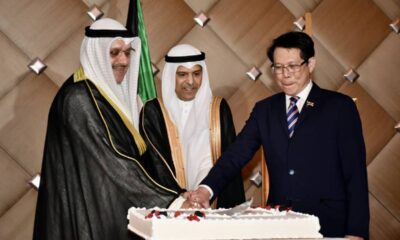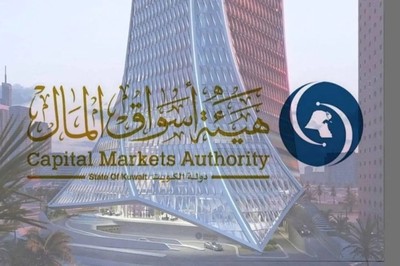KUWAIT CITY, April 22: Chairman of the Board of Directors of Kuwait Association of Accountants and Auditors Sabah Mubarak Al-Jalawi has stressed the importance of accounting, auditing and sustainable governance in developing the business environment. In his speech at the opening of the Accounting, Auditing, Governance and Sustainability Conference, Al-Jalawi revealed the conference aims to share regional and international experiences and expertise in the field of sustainability and leverage them to address the challenges that the global economy is facing, particularly the rapid changes it is witnessing, which call for building an economic system capable of meeting these challenges. Assistant Undersecretary for Corporate Affairs Sultan Al-Otaibi attended the conference.
Al-Jalawi said the association is keen to hold these annual conferences that discuss issues of economic importance and benefit from their results and recommendations to build the New Kuwait 2035 and move forward in achieving and enhancing governance and sustainable development. He emphasized that the association has been keen since its inception to hold annual conferences, with the participation of experts and speakers in the field, and to leverage these conferences to improve the performance of its practitioners by addressing the issues raised from both theoretical and practical perspectives.
He disclosed that the conference is being held in cooperation with the College of Business Studies at the Public Authority for Applied Education and Training (PAAET), with the attendance of a number of international experts and academics in the profession, including the president of the International Federation of Accountants (IFAC), a representative of the World Bank, and a number of international academics, experts, and researchers in the profession from several countries.
Honorary President of the association Yousef Saleh Al-Othman stated that the topics and themes presented by the speakers and participants in the conference, which discuss the sectors of accounting, auditing, governance, and sustainability, will have practical outcomes that contribute to achieving sustainable development. He pointed out that the recommendations emerging from the conference will undoubtedly contribute to developing the business environment and addressing challenges. Director General PAAET Dr. Hassan Al-Fajjam affirmed the importance of the topics at the conference, citing the recommendations and practical outcomes that will contribute to developing the auditing and sustainability sectors. Chairman of the conference organizing committee Dr. Saud Al-Azmi said the conference is the result of a constructive strategic partnership between the association and PAAET.
He added the organizing committee wanted to attract distinguished research papers and organize working sessions bringing together leading researchers and leaders of the profession to discuss the most prominent challenges and developments in the field and to create an interactive space for the exchange of experiences and knowledge between all parties. Dean of the College of Business Studies Dr. Fares Al- Hayyan, asserted that the conference reflects the strategic partnership between the college and the association. “We aspire to see this as a strategic partnership that achieves Kuwait’s development vision by addressing economic issues capable of achieving the goals and development plan adopted by Kuwait,” he stressed. Secretary General of the association Faisal Abdul Mohsen Al-Tabikh added the conference attracts the best international and regional expertise in the field of governance and sustainability. “It also hosted a number of officials from Gulf and Arab professional organizations, indicating that the presence of these professionals provides a great opportunity to exchange views and experiences on topics that have become essential components of the work of business organizations, specifically the areas of auditing, governance, and sustainability,” he concluded.
By Marwa Al-Bahrawi Al-Seyassah/Arab Times Staff

 Politics15 hours ago
Politics15 hours ago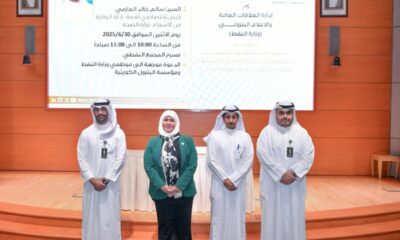
 Latest News23 hours ago
Latest News23 hours ago
 Politics23 hours ago
Politics23 hours ago
 Latest News21 hours ago
Latest News21 hours ago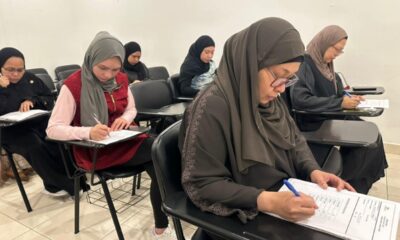
 Latest News22 hours ago
Latest News22 hours ago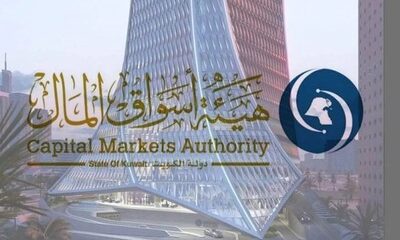
 Business12 hours ago
Business12 hours ago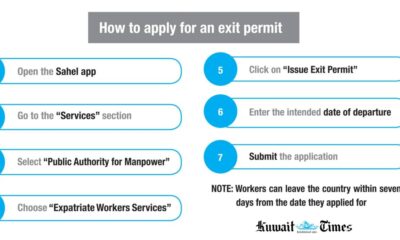
 Latest News9 hours ago
Latest News9 hours ago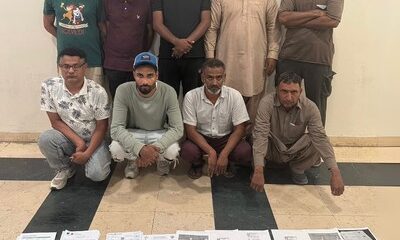
 Politics13 hours ago
Politics13 hours ago

